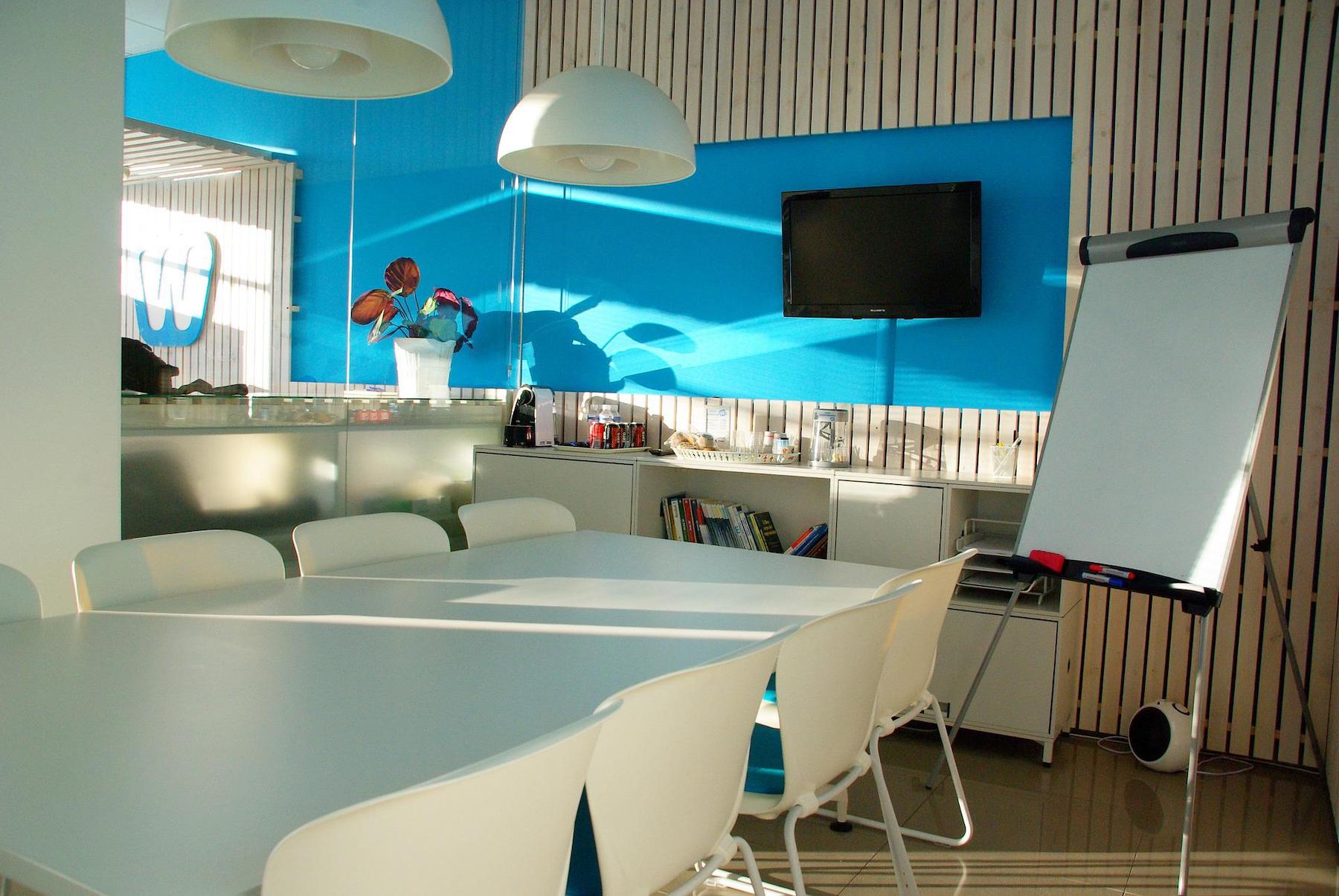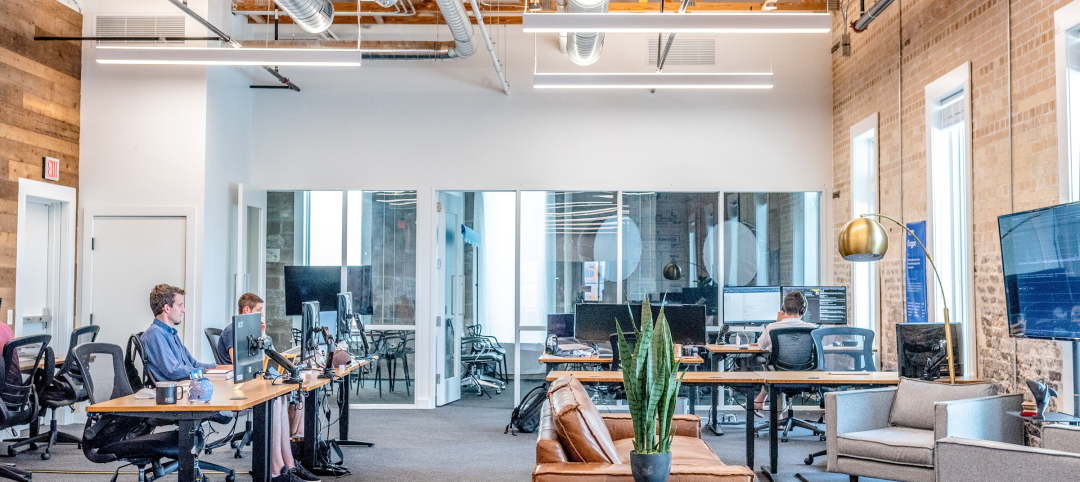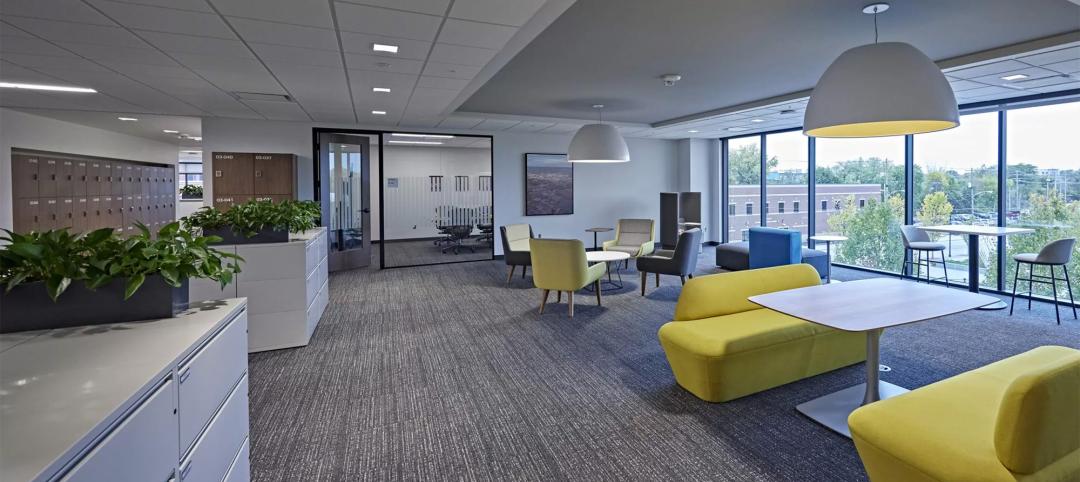JLL’s 2022 Office Fit Out Guide report provides benchmark costs to build out a range of office types across major markets in the United States and Canada. The cost benchmarks are built on the data from thousands of real-world projects, supported by detailed cost estimating models, and confirmed by local experts working across the country.
Additional variants of the COVID-19 virus delayed a mass return to the office in 2021, frustrating expectations for a timely return to normal. At the end the first quarter of 2022, hybrid work remains prevalent and the role of the office remains in flux, with firms navigating increased scrutiny around employee work-life balance in a tight labor market. The office must evolve in response to the lessons learned in the pandemic.
Where Are We Now?
The guide offers high-level guidance on what offices ready for the post-pandemic world might entail and cost.
- Supporting mobility and changing work cadences: With an estimated 64% of workers stating that they would or have considered quitting if asked to return to the office full time and no marked decline in productivity noted due to work-from-home, hybrid schedules remain a part of office worker life and a critical evaluation of how the office can best support work is underway. As a result, future office designs will place a greater emphasis on custom collaboration and community spaces, enhancing in person communication.
- Technology-centric design to support new ways of working: A workplace designed for a mobility-focused and partly remote workforce will include a greater share of conference rooms, huddle rooms, and flexibility collaboration spaces that allow for video calls and presentations designed for a virtual-first environment. Audio visual and other supportive tech infrastructure once limited to higher-end build outs is now a baseline requirement for a post-pandemic office.
- Sustainable design and new measures of costs: As almost 90 percent of the global economy is attached to a net-zero carbon goal, sustainability in the built environment has become a first-class measure of value. In order for both occupiers and landlords to achieve science based target initiatives for emissions, fit outs must support long-term sustainability goals.
- Employee wellness supported by the built environment: Part of redefining the office in a post-pandemic work is navigating the impact the built environment has on employee health. From preventing the spread of viral transmission to increasing cognitive function in the office by up to 26 percent, wellness focused design is critical to facilitating return to office at any scale and supporting productivity.
Related Stories
High-rise Construction | Jul 29, 2024
Safdie Architects’ Shanghai office tower features glass-enclosed corner garden that ascends the 35-story structure
Safdie Architects has announced the completion of LuOne Mixed-Use Complex—a business, retail, and entertainment development in the Luwan district of Shanghai, China. The mixed-use complex consists of an eight-level retail galleria, which opened in 2018, and a 35-story office tower, which recently reached completion.
Smart Buildings | Jul 25, 2024
A Swiss startup devises an intelligent photovoltaic façade that tracks and moves with the sun
Zurich Soft Robotics says Solskin can reduce building energy consumption by up to 80% while producing up to 40% more electricity than comparable façade systems.
Great Solutions | Jul 23, 2024
41 Great Solutions for architects, engineers, and contractors
AI ChatBots, ambient computing, floating MRIs, low-carbon cement, sunshine on demand, next-generation top-down construction. These and 35 other innovations make up our 2024 Great Solutions Report, which highlights fresh ideas and innovations from leading architecture, engineering, and construction firms.
Office Buildings | Jul 22, 2024
U.S. commercial foreclosures increased 48% in June from last year
The commercial building sector continues to be under financial pressure as foreclosures nationwide increased 48% in June compared to June 2023, according to ATTOM, a real estate data analysis firm.
Sponsored | Office Buildings | Jul 17, 2024
Unlocking Sustainability: Smart Access in the Coworking Space
Smart building technologies, including modern access control systems, are transforming coworking spaces by advancing sustainability initiatives and offering new ways to create and operate efficient working spaces. Learn more about the benefits of eco-friendly practices, from reducing carbon emissions to cutting operating costs, and discover how choosing the right partners can amplify your green efforts.
Adaptive Reuse | Jul 12, 2024
Detroit’s Michigan Central Station, centerpiece of innovation hub, opens
The recently opened Michigan Central Station in Detroit is the centerpiece of a 30-acre technology and cultural hub that will include development of urban transportation solutions. The six-year adaptive reuse project of the 640,000 sf historic station, created by the same architect as New York’s Grand Central Station, is the latest sign of a reinvigorating Detroit.
Government Buildings | Jul 8, 2024
GSA adopts new accessibility guidelines for federal properties
The U.S. General Services Administration (GSA) adopted a new rule with new accessibility guidelines for federal buildings. The rule establishes that pedestrian facilities in the public right-of-way are readily accessible to and usable by people with disabilities.
Office Buildings | Jul 8, 2024
Office vacancy peak of 22% to 28% forecasted for 2026
The work from home trend will continue to put pressure on the office real estate market, with peak vacancy of between 22% and 28% in 2026, according to a forecast by Moody’s.
Office Buildings | Jul 1, 2024
Mastering office layouts: 5 primary models for maximum efficiency and productivity
When laying out an office, there are many factors to consider. It’s important to maximize the space, but it’s equally important to make sure the design allows employees to work efficiently.
Smart Buildings | Jul 1, 2024
GSA to invest $80 million on smart building technologies at federal properties
The U.S. General Services Administration (GSA) will invest $80 million from the Inflation Reduction Act (IRA) into smart building technologies within 560 federal buildings. GSA intends to enhance operations through granular controls, expand available reporting with more advanced metering sources, and optimize the operator experience.

















